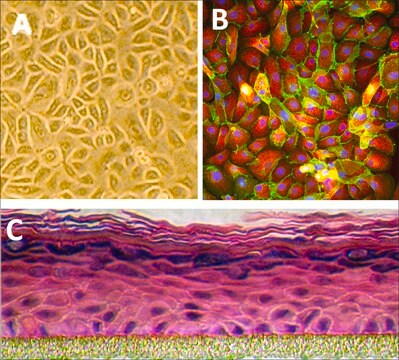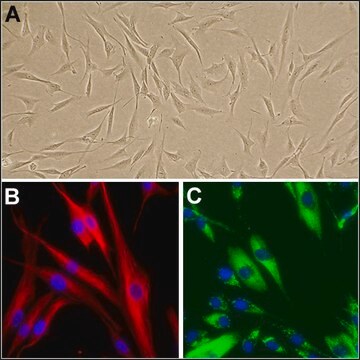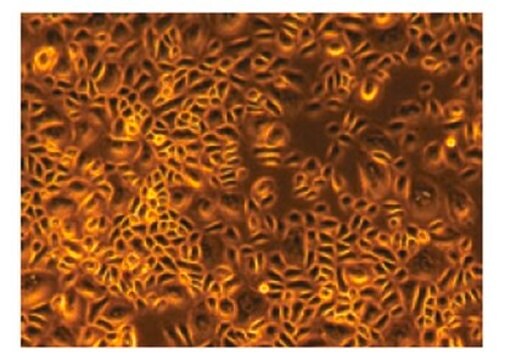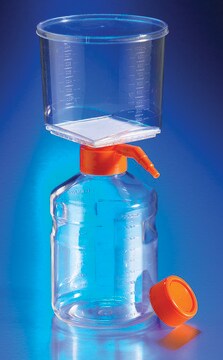102-05N
Human Epidermal Keratinocytes: HEK, neonatal
Sinónimos:
HEK cells
About This Item
Productos recomendados
biological source
human neonatal foreskin or adult skin (normal)
Quality Level
packaging
pkg of 500,000 cells
manufacturer/tradename
Cell Applications, Inc
growth mode
Adherent
karyotype
2n = 46
morphology
Epidermal
technique(s)
cell culture | mammalian: suitable
relevant disease(s)
allergies; cancer
shipped in
dry ice
storage temp.
−196°C
General description
Epidermal keratinocytes comprise 90 % of all cells found in the epidermis, the outermost layer of skin. They produce keratin, the intermediate filament, largely responsible for skin’s barrier function. Through their interactions with epidermal melanocytes, keratinocytes obtain melanin and store it as a means of protection from UV radiation.
HEK provide an excellent model system to study many aspects of epithelial function and disease, particularly those related to skin biology and toxicology, as well as HPV infection.
When grown on inserts and provided with the liquid/air interface, HEK can differentiate into a stratified squamous epithelium and serve as a more physiological 3D tissue model for in vitro studies.
Cell Line Origin
Application
Components
Preparation Note
- Primary culture, >500,000 cells in Basal Medium containing 10% FBS & 10% DMSO
- Can be cultured at least 16 doublings
Subculture Routine
Disclaimer
Storage Class
11 - Combustible Solids
wgk_germany
WGK 3
flash_point_f
Not applicable
flash_point_c
Not applicable
Elija entre una de las versiones más recientes:
Certificados de análisis (COA)
It looks like we've run into a problem, but you can still download Certificates of Analysis from our Documentos section.
Si necesita más asistencia, póngase en contacto con Atención al cliente
¿Ya tiene este producto?
Encuentre la documentación para los productos que ha comprado recientemente en la Biblioteca de documentos.
Los clientes también vieron
Nuestro equipo de científicos tiene experiencia en todas las áreas de investigación: Ciencias de la vida, Ciencia de los materiales, Síntesis química, Cromatografía, Analítica y muchas otras.
Póngase en contacto con el Servicio técnico



![5-[bis(2-hydroxyethyl)amino]-6-methyl-2,4(1H,3H)-pyrimidinedione AldrichCPR](/deepweb/assets/sigmaaldrich/product/structures/289/225/e0030cf1-6044-4392-afb4-cfd9fcba4bbc/640/e0030cf1-6044-4392-afb4-cfd9fcba4bbc.png)


